Overview
Learn from some of New Zealand’s leading economics, finance and property academics and apply techniques in real-world environments like our Trading Room – the first of its kind in a New Zealand university.
We have a strong focus on applied research and business consultancy and actively seek the participation of all relevant sectors of New Zealand society.
How we fit
The School of Economics and Finance is part of the:
Massey Business School
The Massey Business School is one of New Zealand’s leading and largest business schools.

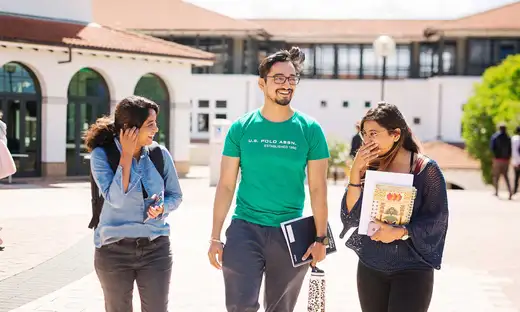
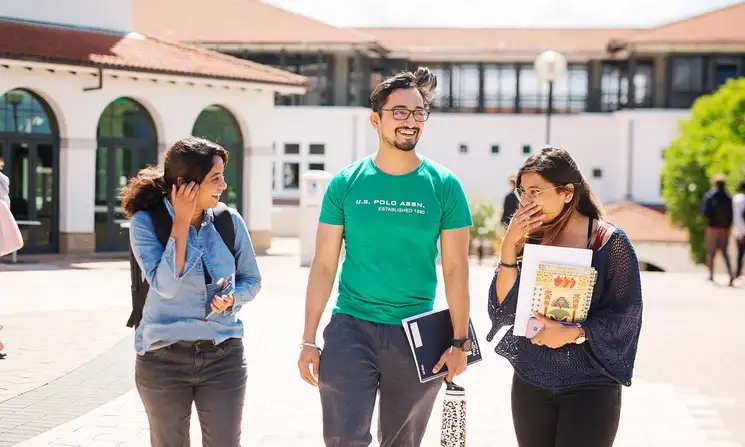
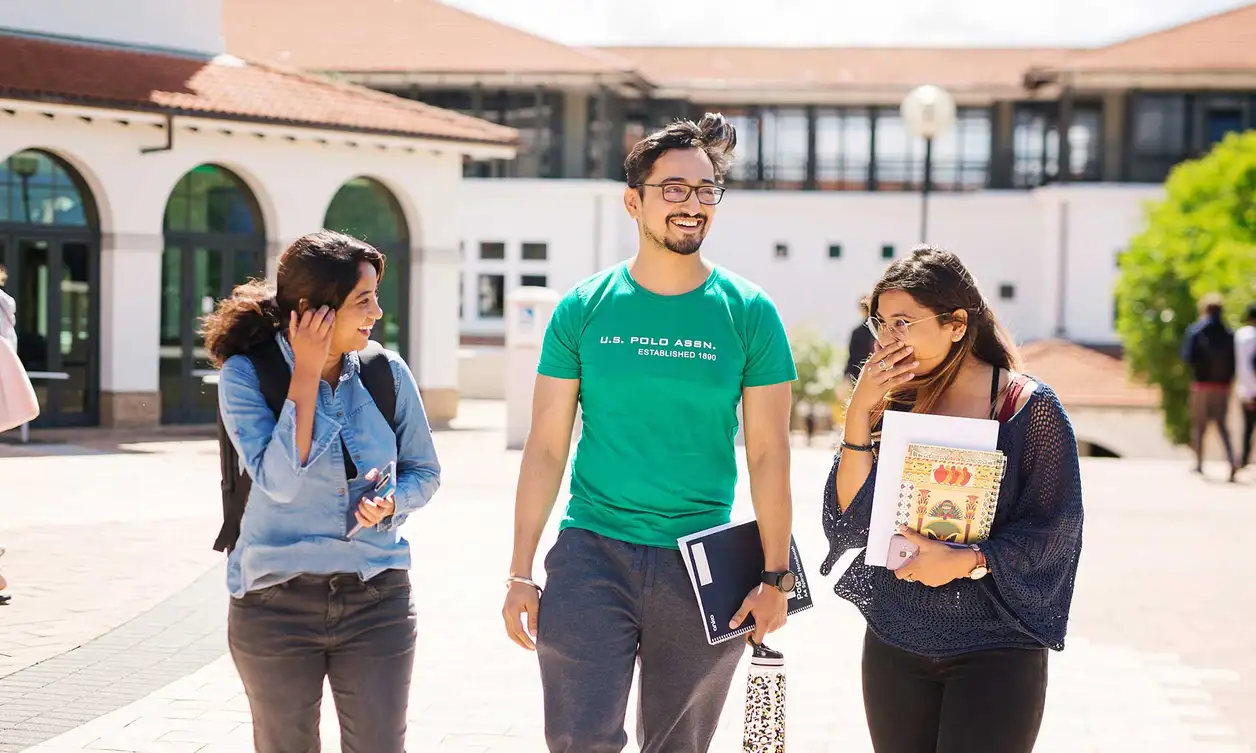
Te Tiriti o Waitangi at Massey
At Massey we are Tiriti-led, upholding te Tiriti o Waitangi principles through our practice.
Te Whare o Te Tiriti o Waitangi — Home of the Treaty at Massey
Study with us
Massey’s economics, finance and property programmes are industry-relevant and applied. We offer many undergraduate and postgraduate qualifications, and a broad range of executive development and short courses, on campus and online.
Explore by area of interest
Explore a selection of qualifications relating to your interests.
Study economics
Analyse how and why people, businesses or governments earn and spend money. With our expert educators, you'll be primed for a rewarding career in economics. Learn more today.




Study finance
From stock markets to personal finance, Massey turns out career-ready graduates. Our business school ranks in the top 5% globally.



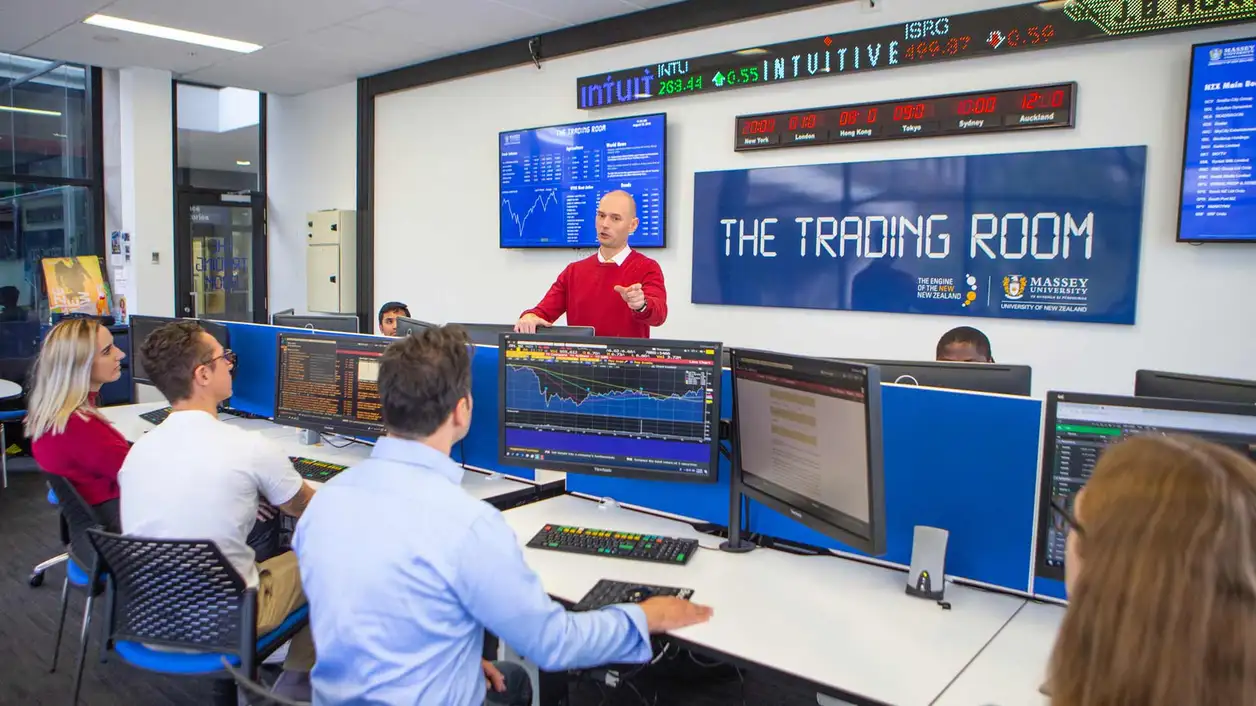
Study property
Housing poses challenges for New Zealand, including availability, affordability and sustainability. Learn more about studying property at Massey.





Trading Room
The Massey University Trading Room was the first of its kind in New Zealand - fully-functional trading room to aid student learning.
It contains Bloomberg financial terminals, a live stock price ticker and information and news screens and gives Massey's finance students real-life fund management experience.
Location: Auckland campus
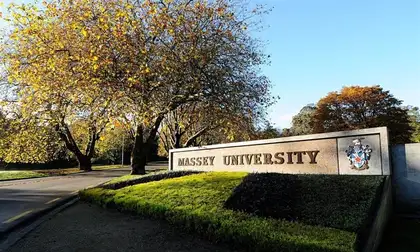
Investment room
Massey's investment room in Palmerston North is a live trading room for finance students and others interested in investment, with computers displaying financial market dates and screens with rolling news coverage.
Location: Manawatū campus
Who we are
Our people make us who we are. Meet senior leaders in the School of Economics and Finance.
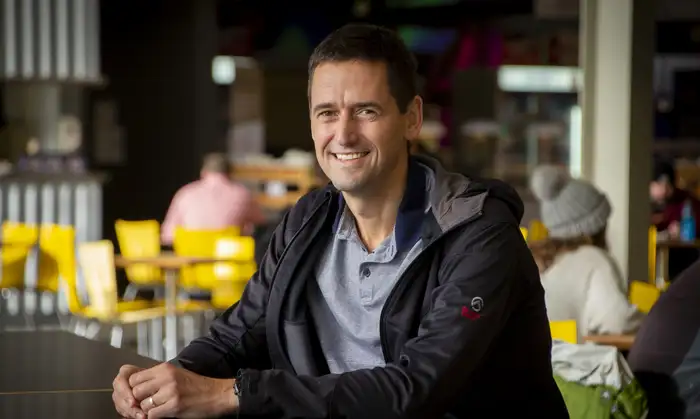
Professor Martin Berka
Martin is a Professor of Macroeconomics and a director of the New Zealand Centre for Macroeconomics. He is also a Fellow of the Asian Bureau for Financial and Economic Research. Martin's primary research interests lie in international finance, open economy macroeconomics, and monetary economics.

Professor Ben Marshall
Ben is currently ranked in the top 1% of authors on the international working paper website SSRN (based on downloads of his papers) and his work has been discussed in numerous newspapers and investment blogs and has won numerous other prizes and awards.

Professor Sasha Molchanov
Sasha’s research focuses on international finance, politics, and corporate social responsibility. His works have been published in several high-profile journals including Review of Financial Studies, Journal of International Business Studies, and Management Science.

Associate Professor Jing Chi
Jing’s prior work experience includes issuing IPOs in Huatai Securities Company in China and working as an Analyst in the London Stock Exchange. Jing became a CFA charter holder in 2005 and received the 2013 New Zealand National Tertiary Teaching Excellence Award.

Professor Hatice Ozer Balli
Hatice is an internationally recognised Applied Econometrician whose research spans international economics/finance, banking, property, energy economics, Islamic finance/economics and tourism economics.
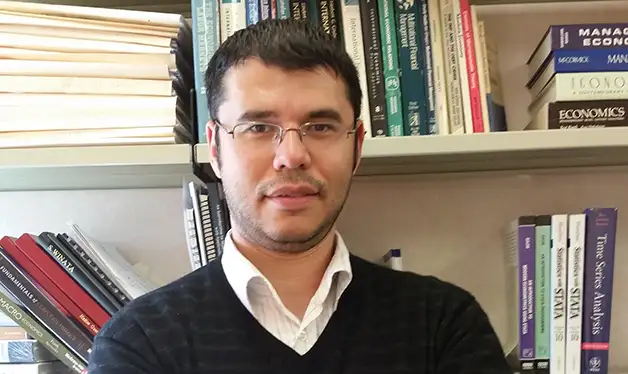
Professor Faruk Balli
Building on his PhD in International Economics, Faruk’s research and collaborations have spanned across the fields of International Economics/Finance, Islamic Finance Energy Economics and Tourism Economics.

Associate Professor George Wu
George’s research focuses on empirical asset pricing models/theories and corporate finance theories, particularly in the fields of corporate social responsibility and investors’ lottery investing behaviour.

Associate Professor Hung Do
Hung’s research focuses on energy finance, financial risk management, behavioral finance, sustainable finance, and financial markets. His works have been disseminated in well-regarded international conferences and published in high-quality journals. Hung has won several prizes and awards in both research and teaching.

Associate Professor Yuk Ying Chang
Yuk Ying Chang has diverse research interests, including the impact of cross-border moves and capital flows, the survival of firms, forecast accuracy, and stock liquidity. Her professional activities involve grant application assessment, conference organisation and participation, journal editing, journal reviewing, and thesis examination.
What our students say
“Massey had smaller class sizes and a more personal feel. You were part of a community rather than just another student.”

“I found the papers very practical and interesting – field trips helped to consolidate things we learnt in lectures.”

“The property papers gave me a good introduction into the real world that I now deal with daily. When I started my first job, the terms used weren’t foreign to me and I was able to put into practice everything that I had learnt.”

Accreditations
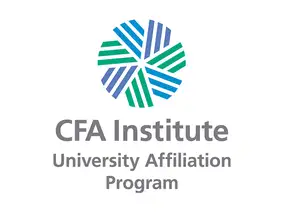
Chartered Financial Analysts Institute (CFA)
Massey University is part of the Chartered Financial Analysts Institute's (CFA's) University Affiliation Programme.

Global Association of Risk Management Professionals (GARP)
Our Master of Finance (Risk Analytics) is accredited with the Global Association of Risk Management Professionals (GARP).

Financial Advice New Zealand
This qualification satisfies the education requirements for becoming a CERTIFIED FINANCIAL PLANNER CM professional with the professional body Financial Advice New Zealand (other non-educational requirements are required).

New Zealand Institute of Valuers (NZIV)
Once you are registered with the Valuers Registration Board you may also apply to become a Member of the New Zealand Institute of Valuers (MNZIV). After 1 year of NZIV membership a member can apply to become an Associate member of NZIV (ANZIV, MPINZ).

Property Institute of New Zealand (PINZ)
The Bachelor of Business (Property) and Bachelor of Agribusiness (Rural Valuation) are accredited by the Property Institute of New Zealand (PINZ). Suitably qualified students may apply to PINZ to obtain registration in their selected field of expertise. Registration requires the necessary qualifications and at least 3 years practical experience in a selected field of expertise.

Real Estate Institute of New Zealand (REINZ)
The Real Estate Institute of New Zealand (REINZ) accredits the Bachelor of Business (Property). It represents more than 14,000 real estate professionals nationwide.

Royal Institution of Chartered Surveyors (RICS)
Massey's Bachelor of Construction is accredited by the Royal Institution of Chartered Surveyors. This global professional body promotes and enforces international standards in the valuation, management and development of land, real estate, construction and infrastructure.

Valuers Registration Board (VRB)
Suitably qualified students may apply to the Valuers’ Registration Board to obtain registration as a valuer. Registration (recognised as a minimum standard of competence) requires the valuer be 23 years of age, have the necessary qualifications and a minimum 3 years practical valuing experience. Registration is covered in the Valuers Act (1948).
Rankings

QS Ranking – Accounting and Finance
Massey is ranked by QS (Quacquarelli Symonds) as one of the top 200 universities for accounting and finance.

QS Ranking - Economics and Econometrics
Massey University is ranked by QS (Quacquarelli Symonds) as one of the top 350 universities for economics and econometrics.
Meet our graduates
“During my study at Massey, I had opportunities to learn from the excellent professors and the students from different countries, to develop the ability to solve problems, and to build my own research capability. All of these are extremely useful in my daily work as a portfolio manager.”

“While challenging, I found the economics major at Massey to be extremely versatile, interesting and valuable. I developed strong quantitative, qualitative and critical thinking skills throughout. Skills that have enabled me to apply for, and deliver tangible change within, a wide range of jobs.”

“Massey provided a supportive, affectionate and comfortable learning environment. The good databases, the facilities, the technical and administrative support, and support for international students such as myself significantly contributed to the accomplishment of my doctoral degree.”
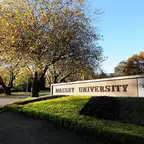
Research
We conduct internationally recognised research in economics and finance. Our staff are also involved in or lead several renowned research centres in the areas of applied and theoretical economics and public policy evaluation, finance and banking, and property issues.
Economics and finance discussion papers
A number of research projects are in progress at Massey's School of Economics and Finance.
The current series contains papers primarily from the economics discipline. Comments and criticism are invited. Quotations may be made on explicit permission of the author(s). Papers that have been revised and published are not downloadable, but where available, the publication reference is made available.
2022 discussion papers
The effects of natural resource extraction on household expenditure patterns: Evidence from Mongolia, O. Narantungalag, 22 April
No pain, no gain? Mining pollution and morbidity, O Narantungalag, S. Hasan & M. Berka, 22 March.
The intended and unintended consequences of large electricity subsidies: evidence from Mongolia, O. Narantungalag, S. Hasan & M. Berka, 22 February
Proximity to health care centres and service intake: The case of Community Clinics in Bangladesh, S. Hasan, T. Akter (University of Technology Sydney), M. Jahan (UNICEF, Bangladesh), and A. Dewan (Curtin University), 22 January
2021 discussion papers
The Economics of Global Warming 1959 - 2020, W. Razzak, 21 March
The Ownership of Oil, Democracy, and Iraq's Past, Present and Future, W. Razzak, 21 February
Large-scale mining and local development: Evidence from Mongolia, O. Narantungalag, 21 January
2020 discussion papers
Measuring the Effect of Negative Interest Rate on New Zealand Banks, W. Razzak, 20 August
The Dynamic of COVID-19 New Infections under Different Stringent Policies, W. Razzak, 20 July
The Riddle of the Natural Rate of Interest, W. Razzak, 20 June
Does Testing for Coronavirus reduce Deaths? W. Razzak, 20 May
Modelling New Zealand COVID-19 Infection Rate,and the Efficacy of Social Distancing Policy, W. Razzaak, 20 April
Article length and citation outcomes, S. Hasan, R. Breunig (Australian National University), 20 March
Research Effort and Economic Growth, W. Razzak, 20 February
The Transitional Dynamic of Finance-Led Growth, W Razzak, E. Bentour (University of Grenoble Alpes), 20 January
2019 discussion papers
Consumers’ Perception of Food Safety Risk From Vegetables: A Rural - Urban Comparison, Thanh Mai Ha, Shamim Shakur, Kim hang Pham Do, 19 February
Exchange rate, remittances and expenditure of foreign-born households: evidence from Australia, S. Hasan, N. Ratna (Lincoln University), S. Shakur, 19 January
Contact
Email Kim Williams: K.Williams@massey.ac.nz

School of Economics and Finance survey
We are in the process of developing a survey as part of an ongoing project to engage with organisations across New Zealand to combine the latest theory with best practice to benefit businesses, regulators, and policymakers.
Research centres and groups
We conduct internationally recognised research in both applied and theoretical economics and topics in macroeconomics and have expertise in applying econometrics to a broad range of areas.
Our staff, including our emerging researchers, regularly publish globally in top journals and top field journals.

Knowledge Exchange Hub
The Knowledge Exchange Hub is a leading centre in big-data analytics, including the Real-Time GDP Forecasting and the Shared Prosperity Index.

Te Au Rangahau
Te Au Rangahau works with organisations and leaders to connect te ao Māori – the Māori world – with te ao pakihi – the business world. Research carried out by our Māori academics contributes to the aspirations and wellbeing of Māori people and their enterprises, empowering them to succeed – financially, culturally, environmentally, socially and spiritually – in accordance with tikanga.

New Zealand Centre for Macroeconomics
The Centre, led by Massey University, brings together researchers from universities and industry in New Zealand and around the world. Projects focus on policy-oriented projects of international, national and regional macroeconomics.

Real Estate Analysis Unit
The Real Estate Analysis Unit leads research in New Zealand around the property market. The group produces the Home Affordability Report which is frequently cited in the media and in academic journals, and the New Zealand Residential Rental Survey. The research is freely available and they also offer consultancy or bespoke research services.
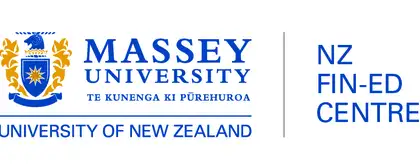
Financial Education and Research Centre (Fin-Ed)
The New Zealand Fin-Ed Centre works to help New Zealanders become more financially savvy by improving their knowledge, attitudes and behaviour towards money.
The centre is globally unique for the breadth of its work around financial literacy, covering education, research and consultancy. We do research and run courses for both groups and individuals.

Social Innovation and Entrepreneurship Research Centre
The New Zealand Social Innovation and Entrepreneurship Research Centre (SIERC) is a hub for interdisciplinary academic research in social innovation and entrepreneurship.
The Centre investigates the application of ideas to areas of social value and entrepreneurial action by organisations and individuals that creates significant social value.

Sustainable Finance Cluster
The Sustainable Finance Cluster (SFC-SEF) aims to deliver high-quality research and consultations alongside knowledge exchange series that help highlight the role of the finance discipline for sustainability in business practice and the society. As a result, the scope of SFC-SEF covers several important and current issues that link finance and sustainability together.
Seminars
The school runs a series of regular seminars showcasing the latest economics, finance and property research from Massey academics and visiting speakers.
Social media
Contact us
School of Economics and Finance – Auckland campus
- sef@massey.ac.nz
- Location
Auckland Massey’s campus is in Albany on the North Shore. The School of Economics and Finance is based in the Quadrangle Building B, Level 2.
Use our Auckland campus maps or find us on Google Maps.
School of Economics and Finance – Manawatū campus
- sef@massey.ac.nz
- Location
The School of Economics and Finance administration and teaching team’s offices are located in the Business Studies West building in the centre of Massey’s Manawatū campus in Palmerston North.
Use our Manawatū campus maps or find us on Google Maps.
School of Economics and Finance – Wellington campus
- sef@massey.ac.nz
- Location
In Wellington we have a smaller number of staff, predominantly teaching staff. The Westpac Massey Fin-Ed Centre is also based in Wellington.
Use our Wellington campus maps or find us on Google Maps.
